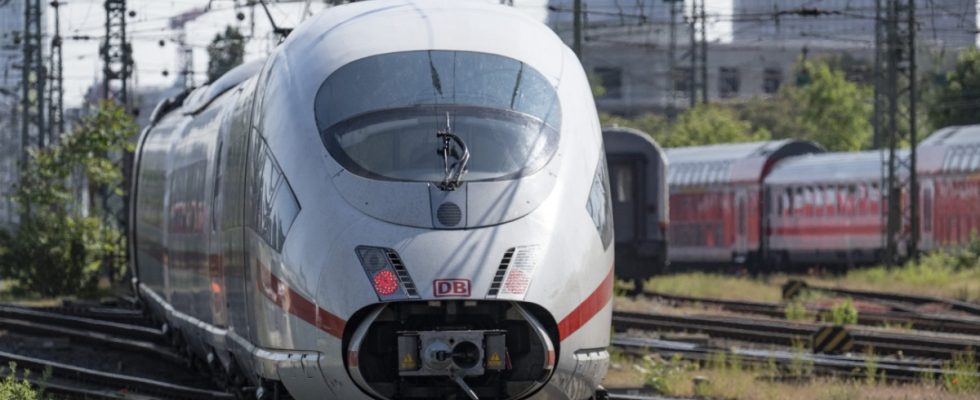“Because of people on the track, our onward journey has been delayed indefinitely.” Almost every train passenger knows this announcement. Many passengers then regularly look at the clock: 15 minutes standstill, 30 minutes, 45 minutes – from one hour delay, the train gives 25 percent of the ticket price back, from two hours even 50 percent, at least a small consolation. The reason for the delay has not mattered so far. Now the new EU regulation “on the rights and obligations of passengers in rail traffic” comes into force. This changes a lot. An overview.
In which cases will passengers no longer get their money back in the future?
In the event of train cancellations and delays, railway companies in the EU no longer have to pay compensation if extraordinary circumstances are the reason over which they have no control: These are extreme weather conditions, police operations, cable thefts, emergency services on the train or people on the tracks. The railways have assured that “normal” storms will not be interpreted as “extreme weather” and that they will also be accommodating in the event of extraordinary natural events such as the flood of the century in the Ahr Valley in summer 2021. In the event of strikes or delays due to the ailing rail network, travelers are still entitled to compensation.
By when do passengers have to apply for their compensation?
Previously, passengers had one year to submit a claim for compensation. Now it’s only three months. This is likely to be a problem for very few travelers, because 97 percent demand their money back promptly or within three months anyway.
What other rights do train passengers have in the event of delays?
The right to assistance in the event of delays of more than one hour or in the event of train cancellations is largely unaffected by the new regulation. Then the railway has to provide its passengers with appropriate meals and drinks and, if necessary, also take care of hotel accommodation. There is only one small change here: If extraordinary circumstances are the cause of the train cancellations, the railway company can limit hotel accommodation to a maximum of three nights, according to Article 20 of the regulation. There was no such restriction before.
Can passengers take another train if they are delayed?
In the case of foreseeable delays of more than one hour, passengers can choose at the destination station whether they want a refund or continue their journey. You can continue at the next opportunity or at a later time. From now on, they can also organize their onward journey themselves, using train and bus connections from other public transport services. The costs incurred can be reclaimed from the railways. However, only if they have previously given their consent or have not informed the passenger of any travel alternative within 100 minutes of the scheduled departure.
What do the new rules mean for holders of the 49 euro ticket?
If someone who is traveling to a long-distance train station with a Germany ticket to take an ICE there misses their train because the regional train is late, they will not receive any compensation. According to the new EU regulation, the Deutschlandticket is considered a “considerably reduced transport fee”. The consequence: If the delay is more than 20 minutes, passengers are not allowed to switch to long-distance transport and are not entitled to compensation. There are only exceptions if travelers with the last connection of the day do not reach their destination before midnight or arrive between midnight and five in the morning with a delay of at least 60 minutes. In these cases, they too may continue to travel with an ICE, for example. Consumer advocates are critical of the fact that holders of the Deutschlandticket will be partially excluded from rail passenger rights in the future. “It is incomprehensible why passengers who are delayed are not allowed to switch to higher-value trains free of charge, as is usual with other monthly and annual tickets,” says Ramona Pop, head of the Federal Association of Consumer Organizations.
What does the new regulation mean for people with reduced mobility?
Spontaneous travel is still not possible for wheelchair users, but they can at least travel a little more quickly. Previously, a passenger had to contact the railway at least 48 hours in advance if they needed help boarding and alighting. With the new EU regulation, it is only 24 hours.

